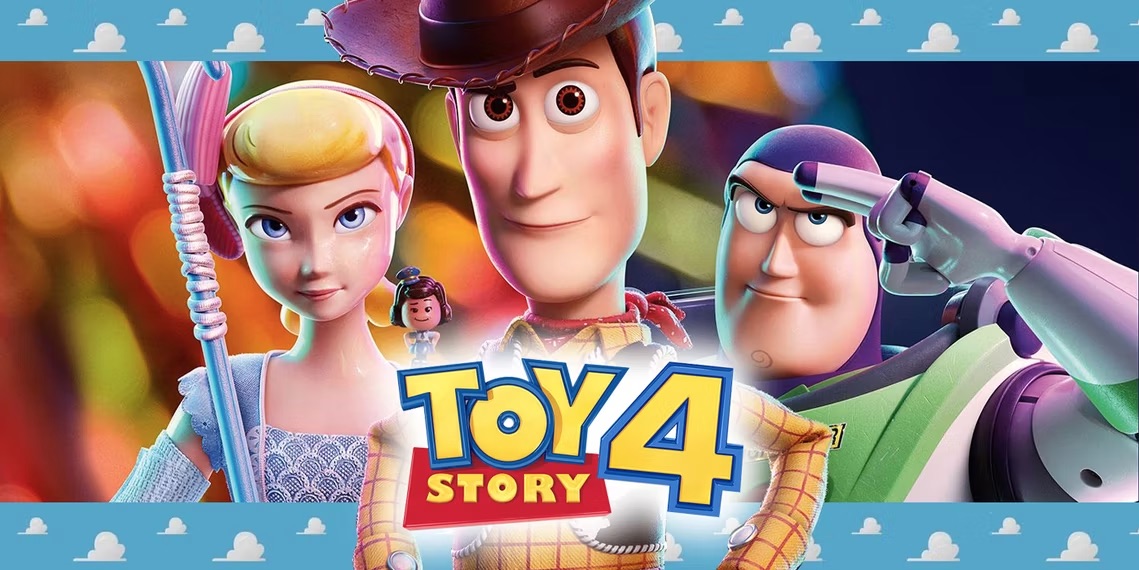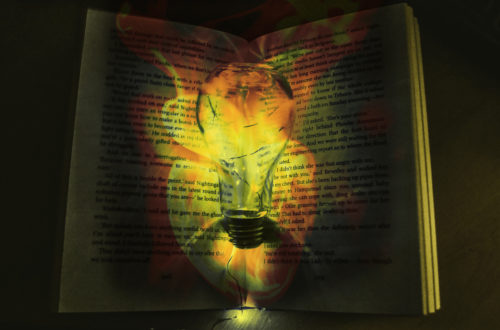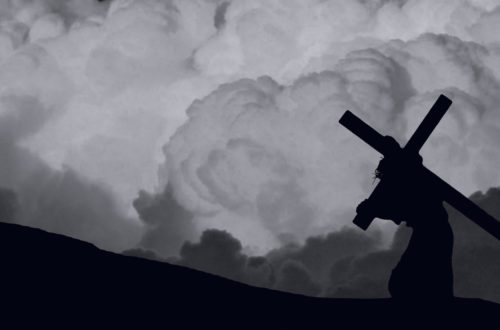
Toy Story 4 and the Gods That Fail
Recently I have been listening to, and very much enjoying, Nate Morgan Locke. Nate appears regularly with Glen Scrivener on the “Speak Life” podcast and vlogs on his own Youtube channel as the “Reformed Mythologist”. Nate thinks deeply about fun things—especially movies. He explores the nature and history of our cultural artefacts and ferrets out their themes and their appeal with a clear-eyed appreciation of the world as the Bible describes it. Most of the time, I think he gets things right.
But not always. And that brings me to Toy Story 4.
You. Are. A. Toy!
As you can see if you watch his discussion, Nate is a big fan of the Toy Story series. He likes the storytelling and is even more excited by the theological implications of the first three movies, which he describes as theological myths. As Nate sees it, TS1-3 tell the same story as the story of Creation: You (toy/human) were made to belong to Someone (Andy/God):
Andy is the shepherd; the toys are the sheep of his pasture. They are cared for and played with. Andy is the one who marks them with his seal of ownership. Andy is the one for whom they exist and he makes them his treasured possession.
Nate explains how the individual movies flesh this out. In TS1, Woody must learn that Andy’s expansive love for Buzz does not mean he is abandoned. TS2 reveals the emptiness life apart from Andy. Finally in TS3, as Andy outgrows his toys, Woody and the rest must face-up to what comes next—and finally discover happiness in Andy’s plan for them.
But the “hellish doctrine” of Toys Story 4 (as Nate calls it) subverts that central message. Bo Peep reappears as an agent of emancipation—a leader of ownerless “Lost Toys” who have cut themselves free of exclusive devotion to just one child. In her own words:
Open your eyes, Woody. There’s plenty of kids out there. It can’t be just about the one you’re still clinging to.
As Bo Peep sees it, children aren’t worthy of that sort of devotion: “Kids lose toys every day.” Instead, toys need more options. They can belong to each other or play with multiple children. In the end, she and her crew (including Woody) leave to join a travelling carnival where there will be endless play free of long-term commitment.
Now Nate hates this, and I think he has good reason to feel that way. I also suspect he is right to identify (and protest) an anti-religious agenda here. I am surprised they didn’t put Bo in Doc Martens and a “No God, No Masters” t-shirt. To me, the “Lost Toys” vision of freewheeling play sounds like the creepy anarchy of queer ideology—but maybe that’s just because I live in Melbourne where that’s our state religion.
Bo Peep against the Gods
But here’s where I disagree with him. I think Bo Peep has a point. If children are the gods of the Toy Story series, then they are terrible gods. They do “lose toys all the time”—and that’s not the half of it. Within the course of the first three movies, we see how quickly they forget or replace the toys they lose. They play carelessly (Molly). They lose interest (Emily). They reject toys that don’t live up to false advertising (Rejean). Some of them mutilate and vivisect their toys (Sid).
Children grow up to abandon their toys. … How different this is from the Christian vision of eternity where God promises to live with his people forever.
And in the end, children all grow up to abandon their toys. Even Andy—a comparatively kind and careful boy—gives up his childhood playmates as he prepares to leave for college. How different this is from the Christian vision of eternity where God promises to live with his people forever (c.f. Revelation 21:3).
Again, let me stress that this problem is not something that the first three movies conceal—it is a recurring motif that drives their plots and shapes their emotional beats. The more things go on, the more we see how desperately sad it is to be a toy. There is no “happily ever after”, just a few years of happiness before abandonment or consignment. “You never forget kids like Emily. Or Andy,” says Jessie in TS2, “But they forget you.”
In this light, the theology of Toy Story is less Christian theism and more pagan polytheism. Children are finite gods—simply not good enough, or permanent enough, or constant enough to give their subjects a happy ending.
Bo’s Bad Breakaway
None of this is to say that Bo’s solution is right, however. Nate is absolutely correct to point out that Bo Peep’s ideal of promiscuous play is exactly the same as the false solution offered by Lotso in TS3:
“When the kids get old, new ones come in. When they get old, new ones replace them. You’ll never be outgrown or neglected, never abandoned or forgotten. No owners means no heartbreak.”
But we already know that this is a wicked lie. In Lotso’s paradise, the toys are brutalised by children who have no real attachment to them. Even Bo Peep seems to acknowledge this in the fourth movie; she keeps a safety pin to defend herself because “some kids play rougher than others.”
A Higher Plane
So where does that leave us? Am I with Nate or not? Should Pixar have stopped at TS3? Well, yes and no. I love the fact that TS4 faces up to the central problem of the first three movies and tries to offer a more radical answer. I think the movie and the series are richer because of it.
But the answer is wrong—simply not radical enough. In his discussions on good writing, George Saunders likes to quote Albert Einstein’s observation that “No worthy problem is ever solved in the plane of its original conception.” Saunders application of the principle means that the path to a satisfying ending needs to reframe the problem or break through to a new and transcendent perspective. In Star Wars, Luke Skywalker needs to do more than make a good shot to destroy the Death star, he needs to switch off his targeting computer and experience the Force. In Casablanca, Rick Blaine needs to do more than win or lose Ilsa, he needs to decide to become a hero and rescue her husband. In Raiders of the Lost Ark, the divine intervention that finally destroys the Nazis lifts the story above a mundane contest of wills and wits.
And that’s what Toy Story 4 needed—a transforming perspective. It tries to get there as Bo and her crew embrace self-determination, but it fails. What those toys do with their freedom shows that they haven’t really broken free. Their lives still orbit around being loved and played with—except now there will be less love and more risk in the play.
Toy Story 4 needed a transforming perspective. It tries to get there but it fails.
What alternatives might the writers have gone with? Well one possibility is the one revealed toward the end of TS1 where Woody reveals himself to a terrified Sid. Something like that might have allowed a radical renegotiation of the child/toy relationship.
Another ending might have offered some explanation of who or what causes toys to speak and act—leading to the possibility of an ultimate transfiguration (c.f. The Velveteen Rabbit). There was already a possible setup for this with the coming-to-life of Forky (Bonnie’s homemade toy).
But keeping Nate’s theological perspective in mind, I think the best way to end the series would have been to somehow show what lies beyond the myth—I am thinking about a Last Battle-like unveiling, where we meet the True Owner; the One of whom Andy was just a pale reflection—a Friend who would never lose his toys, never get bored with them, never give them away.
Maybe that is too much to expect from Pixar. Their post-mortem outings with Cocoa and Soul have shown us that they have trouble imagining an eternity that would be worth our longing. But it is fun to think of what might have been.




